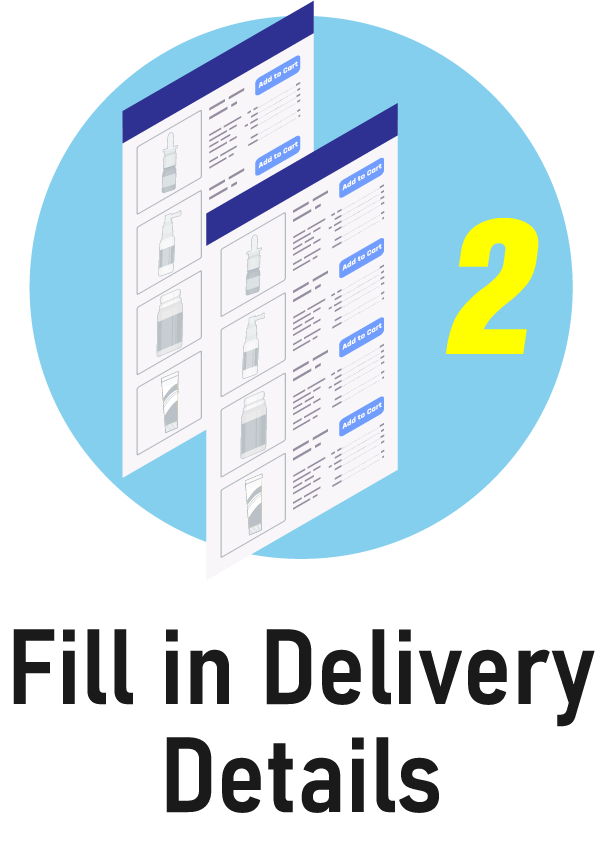Selling Fast at all AA Pharmacy
Check price and availability via WhatsApp








Positive Result
If you see two red lines by C and T regions, it is a positive result. The lines can be distinct or faint. You are tested Covid-19 positive.
-
- RT-PCR test is still required for a confirmation of a Covid-19 case. You are advised to seek medical attention immediately even though you might have no symptoms
- Do follow the current SOP given
Negative Result
If you see one red line by C, and no line by T, it is a negative result.
-
- You probably do not have Covid-19. However, you are advised to continue monitoring for symptoms if you suspect you might be exposed to the virus as there is a chance for a false-negative result
- If you develop symptoms later on, you are advised to do a RT-PCR test as confirmation
Invalid Result
If you do not see any lines, or one line by T, it is an invalid result. The test did not work
-
- You will need to do another test with a new test kit.
The RTK-Antigen Test is a screening tool, not a diagnostic tool!
1. This test can only detect SARS-CoV-2 antigen in human saliva only, not other specimen.
2. If the procedure is done incorrectly, it may cause inaccurate results.
3. False negative results happen if:
-
- The concentration of antigen in a specimen is below the detection limit of the test.
- The specimen was not collected or transported properly.
4. Positive results do not rule out co-infections with other pathogens.
Therefore, due to its limitation in detection range and sensitivity, RTK-Antigen test is used as a screening test and RT-PCR is used as confirmatory test to define a COVID-19 case.
If you have queries on the test, please seek for pharmacist’s professional advice in any AA Pharmacy outlets or PM us!
Frequently Asked Questions
1. Is this test approved by the Malaysia Ministry of Health (KKM)?
Yes, this test is registered and approved by the Medical Devices Authority (MDA) which is the medical devices division under the Ministry of Health.
2. Is this test accurate?
The accuracy of the test is referred to as the sensitivity and the specificity of the test. Based on the evaluation done, the Gmate Covid-19 Ag Saliva Home Kit has a sensitivity of 95% and the Specificity of 98% based on a study of 620 samples.
3. When should I use the test?
-
- 7 days since the onset of the symptoms.
- When you have been to high-risk locations.
- When you have developed symptoms such as cough, flu, fever, difficulty breathing, tastelessness and any symptoms pertaining to the Covid-19 virus.
- As a precaution and peace of mind.
4. I accidentally spit too much saliva into the saliva collection kit, does it affect the accuracy?
No, it doesn’t. However do not spit lesser than the recommended amount into the saliva collection kit.
5. Should I put all the reagent into the saliva collection kit?
Yes, please drop all the reagent into the saliva collection kit.
6. I have accidentally exposed the test kit to high heat in my car, will the kit still be accurate?
The storage condition of the kit needs to be at 2ºc to 30 ºc and heat will affect the accuracy of the test. In that case, please purchase a new kit.
7. Should I store the test kit in the fridge?
No, just store it in a cool place at home where it is around 2ºc to 30 ºc.
8. What should I do if I am positive?
- Tell a healthcare provider about your positive test result and stay in contact with them during your illness. If your illness becomes severe, seek medical attention. To avoid spreading the virus to others, follow KKM Recommendations.
- As much as possible, stay in a specific room and away from other people and pets in your home or place of residence. If possible, you should use a separate bathroom. If you need to be around other people or animals in or outside of the home or place of residence, wear a mask. Don’t share personal household items, like cups, towels, and utensils. Monitor your symptoms. If you have an emergency warning sign (including trouble breathing), seek emergency medical care immediately.
- Tell your close contacts that they may have been exposed to COVID-19. An infected person can spread COVID-19 starting 48 hours (or 2 days) before the person has any symptoms or tests positive. By letting your close contacts know they may have been exposed to COVID-19, you are helping to protect everyone.
9. I accidentally spilled the saliva and reagent mixture, what should I do?
Clean the surface with a disinfectant solution and leave to dry. Purchase a new test kit.
10. If I did not shake 20 times and press 20 times, or I have lost count, what should I do?
Shake another 20 times and press another 20 times and proceed with the rest of the steps.
11. Can this test be performed on kids?
Yes, it can be performed on kids.
12. Does this test kit detect the variations of Covid-19 virus?
Yes, it does detect the current variations of the Covid-19 virus.
13. What if my test is invalid?
Take a picture of the test kit and contact your reseller/pharmacy to get a replacement.
Limitations
- The result of the product should not be taken as a confirmed diagnosis for clinical references only. Judgement should be made along with RT-PCR results, clinical symptoms, epidemic condition and further clinical data.
- If the virus antigen level in the sample is lower than the detection limit the test result may be negative.
- As the duration of the disease increases, the number of antigens in the sample may decrease. After sample is collected, compare it with the RT-PCR analysis, 7 days after the onset of symptoms, the result may be negative.
- Due to the limitation of the detection method, the negative result cannot exclude the possibility of infection. The positive result should not be taken as a confirmed diagnosis. Judgement should be made along with clinical symptoms and further diagnostic methods.
- This reagent can only qualitatively detect SARS-Cov-2, antigens in human saliva. It cannot determine the certain antigen content in the samples. Negative results of SARS-CoV-2 in saliva samples should be confirmed by testing other types of samples.
- The accuracy of the test depends on the sample collection process. Improper sample collection, improper sample transportation and storage or freezing and thawing of the sample will affect the results.
- It is optimum when saliva is mixed with the samples extraction solution. Using other diluents may result in wrong results.
- The solution and test card must be equilibrated to room temperature (20ºc ~ 30ºc) before using, otherwise the results may be incorrect.
- Test results may be affected if the sample is not tested soon. Please test the sample as soon as possible.
- Positive results may be found in patients with SARS-CoV-2 infection.
- Analysis of the possibility of false negative results:
a) Non-matching extracting solution, sample transfer time is too long, too little saliva samples collected, non-standardized sample treated operation, low virus titre in the sample, these may all lead to false negative.
b) Mutations in viral genes that may lead to changes in the antigen epitope, may lead false negative results. - Analysis of false positive results:
a) Inappropriate sample collection, using other non-matching solutions, non-standardized elution operation.
b) Cross-contamination of samples. - Analysis of the possibility of invalid results:
a) If the sample volume is not enough, the chromatography cannot be carried out successfully.
b) The test card would be invalid if the package was broken. The packaging status must be carefully checked before use. - In different stages of infection, samples of different viral load may have different coincidence rates with nucleic acid test results.
